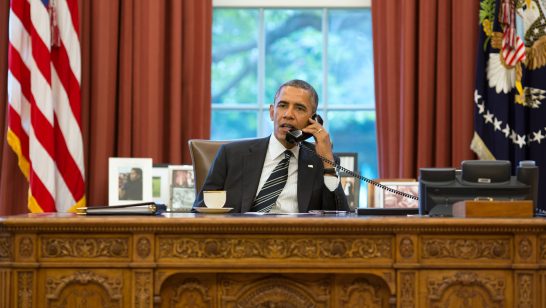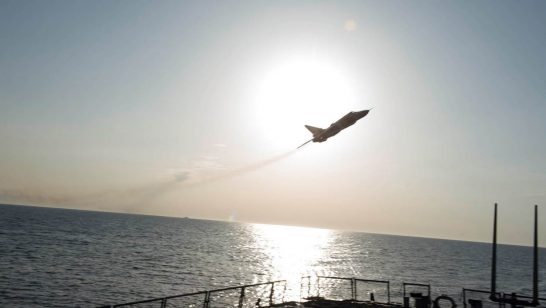
The UK’s Trident Alternatives Review is a highly informed and detailed study of the effectiveness, sustainability and cost of this country’s nuclear deterrent. Trident has been based on a rota of four submarines which between them ensure that there is always one nuclear-armed submarine at sea every hour of the day and every day of the year, a deterrent that is undoubtedly expensive but also, as the Review points out, ”as close as each system can get to an assured second strike capacity”. Trident was developed in close co-operation with the United States and in that sense is not, unlike the French nuclear deterrent, wholly independent. It assumes a very close relationship to the United States, and the UK is of course also protected by NATO.
The review examined the most feasible alternatives to the current deterrent system, including those not based on submarinesas the main delivery system. It then looked at alternatives among those based on submarines. In its second part, it considers the costs and risks, as well as the credibility of each option. Much of the detail is technical but the review sets out the options with admirable clarity, and includes much more information than do most Government White Papers.
While it makes no recommendation, the Review provides the basis for a serious national debate on one of the most critical issues this coalition Government and the Government that succeeds this one after the next general election will have to make. Nuclear weapons are capable of wiping out a small crowded country like the United Kingdom, and can so compromise the climate that millions beyond our shores could be affected too. So it is right, but also bold, to invite an informed debate on the subject. When I was a member of the Cabinet in the 1970s, most of us knew very little about decisions on the development and deployment of nuclear weapons, and certainly did not take part in those decisions. For the Liberal Democrats, the Review has been a remarkable accomplishment, an act of faith in the capacity of an informed democracy to share in responsible policy-making.
There are however two big issues that affect the context in which this debate will take place. The world of 2013 is very remote from the world of the 1970s and 1980s, the decades of the Cold War. In those years, the Soviet Union was the great threat, armed with hundreds of nuclear weapons, some targeted on London and the other big cities and industrial heartlands of the United Kingdom, others on those of the United States. Many of them were on hair-trigger alert. And the threat was real – twice in the lifetimes of those of us born after the Second World War, the world has come to the very brink of catastrophe, the blockade of Berlin in 1948 and the Cuba missile crisis of 1962. It is something of a miracle that all of us have survived them.
In 2013 the sheer number of nuclear weapons has been reduced by half or more, as a result of Salt 2 and the Moscow treaty, disarmament pacts agreed between Russia and the United States. Russian nuclear weapons are no longer targeted on British and American cities. Even now, the US President is trying to get agreement to a further substantial mutual reduction in nuclear arsenals, while Russia is trying to get a common understanding on the deployment of ballistic missiles which it fears could nullify Russia’s own nuclear deterrents. The world we live in has changed out of recognition.
The second issue is whether there are now new threats which make Trident obsolete, directed like France’s Maginot Line in the Second World War at a threat that is disappearing. Cyber-warfare is largely directed today at economic targets like the stealing of intellectual property, or at sophisticated computerised systems. In the last few years we have seen Estonia made overnight non-operational by Russian use of cyber attacks, and Iran’s nuclear refineries damaged by controlled computer viruses. Technology has largely moved on and our defence capabilities have not moved on with it.
Defence is a central concern of any modern state, but disarmament should be too. Moving down the rungs of the nuclear ladder could inspire other nuclear-armed countries to move down too, to much safer international systems of communication, warning and mutual transparency, to reductions in nuclear arsenals, to a safer and more secure world. I hope that in the great debate the Review should inspire, among citizens and experts alike, this aspiration is not forgotten.
—
The article was first published on the website of the Liberal Democrat Voice on 17 July 2013.
The opinions articulated above represent the views of the author(s), and do not necessarily reflect the position of the European Leadership Network or any of its members. The ELN’s aim is to encourage debates that will help develop Europe’s capacity to address the pressing foreign, defence, and security challenges of our time.



